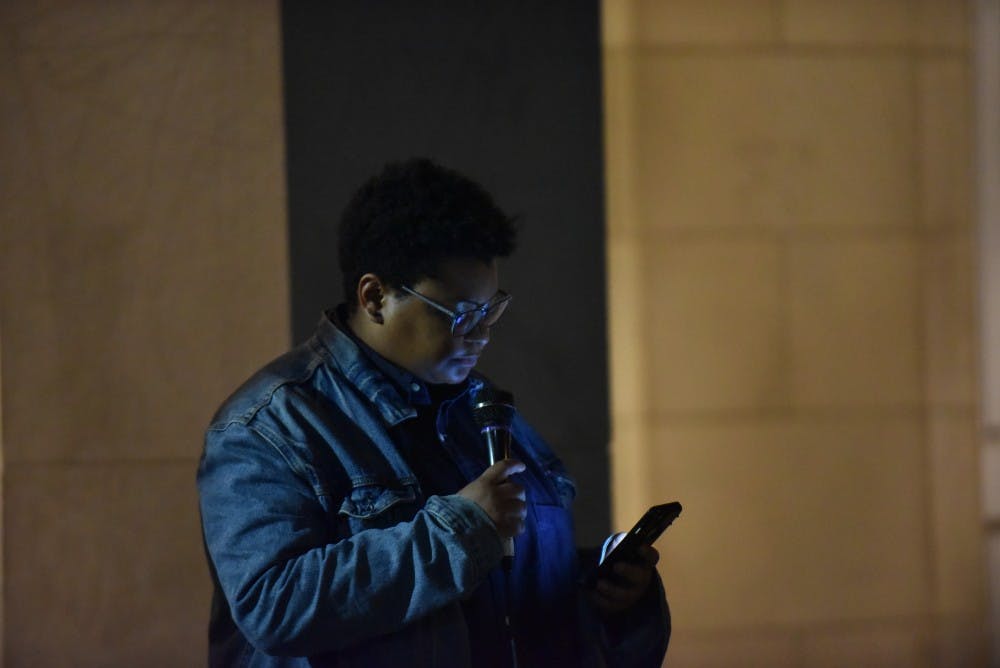Maya Little, the doctoral history student who poured a mixture of red paint and her own blood on Silent Sam in April, is appealing her UNC Honor Court decision for defacing Silent Sam.
The Court sanctioned Little with a warning letter and 18 hours of community service.
Little walked out during the second day of her Honor Court hearing on Oct. 26. Frank Pray, one of the student adjudicators in the trial, came under public scrutiny for prior statements endorsing Silent Sam and a Twitter insult against one of Little’s witnesses, UNC professor Altha Cravey.
Little said she is appealing her Honor Court ruling because she thinks it was unfair. Little said the UNC Honor Court has a history of silencing activists, dating back to 1975 when the University "used the Honor Court to go after" Black student activists who protested the former KKK leader David Duke speaking at UNC using student fees.
“I was convinced I would not receive a fair and impartial trial, and I did not,” Little said. “I felt that it was insulting and degrading to force me to sit there in what Amelia Ahern (panel presiding officer) called ‘an educational process.’ And again, when I asked her why it was going to be educational, she couldn’t answer. Perhaps for some of these students, like Amelia Ahern and such, this is a resume-building experience. They get to adjudicate this tiny little court and use students as their experiments, but I am not going to subject myself to that, and that’s why I walked out.”
Kisha Patel, the Graduate and Professional School Honor Court chairperson, said the Honor Court could not comment on specific cases due to privacy reasons.
But students across campus have varying perspectives on Little’s cause and decision to appeal. Sophomore Sam Bible-Sullivan said Little made a profound statement when she poured the mixture of red paint and blood on Silent Sam in April and feels Pray should not keep his position on the Honor Court. But Bible-Sullivan also believes Little accepting her sanctions could strengthen the movement against Silent Sam.
“Honestly, I feel like they could have gone way harsher on her, and I think that the statement if they hadn’t punished her would have been a statement from the University,” Bible-Sullivan said. “I think her statement would have faltered more because you look at movements and stuff. When people commit acts of protest, it’s them knowing they will face repercussions for those actions that really provides the power with what they’re doing. They’re like, 'Hey, I know I’m going to face legal or Honor Court repercussions, but I don’t care because I care about this.'”
Little, on the other hand, said the Honor Court made a decision to charge her in spite of a petition with over 6,000 signatures calling for her charges to be dropped, including one from a direct descendant of Julian Carr. Carr is known for Silent Sam's infamous dedication speech.



